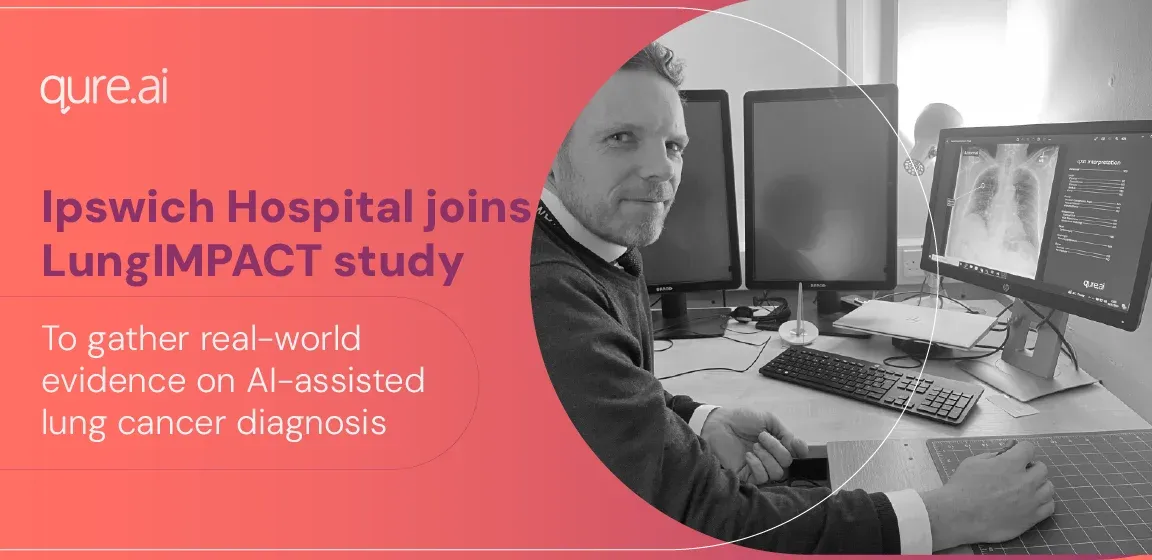Quest continues to gather real-world evidence on AI-assisted lung cancer diagnosis
Back
East Suffolk and North Essex NHS Foundation Trust (ESNEFT) has joined the collaborative LungIMPACT study bringing UK academia, NHS hospitals and AI innovator Qure.ai together to gather real-world evidence of AI-assisted diagnosis of lung cancer.
The ‘LungIMPACT’ trial is using Qure’s qXR solution to triage chest X-rays with the aim of identifying the presence of suspected lung abnormalities and give immediate reporting. This may then enable a patient to be referred for a CT scan faster if lung cancer is indicated, speeding up access to a confirmed diagnosis and treatment planning.
Dr James Hathorn, Consultant Radiologist and Principal investigator for the study at East Suffolk and North Essex NHS Foundation Trust (ESNEFT), said: “There aren’t many big clinical research studies focused on artificial intelligence to prove its real worth, so we’re really excited to be part of this study to help find clinical evidence for the benefits. We want all AI products to be properly researched and evidenced so this is an important study for the future of healthcare.”
Dr Hathorn added: “Hopefully using this technology will speed up the time to diagnosis and ensure patients who need treatment can have it as fast as possible. This is a fantastic support tool in addition to radiologists viewing x-rays. The final decision will still always be the radiologist. The main point of the study is to show that AI could help prioritise which x-rays to report first, leaving the normal ones for later and letting the investigation of potential cancers happen more quickly.”
Darren Stephens, Senior Vice President and Commercial Head of UK & Europe at Qure.ai, said: “We are delighted to welcome Ipswich Hospital to the LungIMPACT trial. It joins other NHS hospitals gathering real-world evidence of how AI can assist in detecting abnormalities on GP-referred chest x-rays to reduce the time taken to diagnose lung cancer. Our qXR software works by highlighting any abnormalities and prioritising the case to the radiologist. The quicker abnormalities are found, the quicker patients can gain treatment, which in the case of cancer has the potential to save lives.”
Frances Farnworth, Assistant Director of Research and Development at ESNEFT, said: “Real-world research in routine environments is really important, as it comes with all the necessary regulatory checks and approvals necessary in the NHS. This assures our patients their data stays within a secure environment.”
The LungIMPACT study was commissioned and funded by the NHS Cancer Programme, with the support of SBRI Healthcare and the NHS Accelerated Access Collaborative. The NHS and academic teams have designed the study and all data will be analysed and reported independently from Qure.ai.
